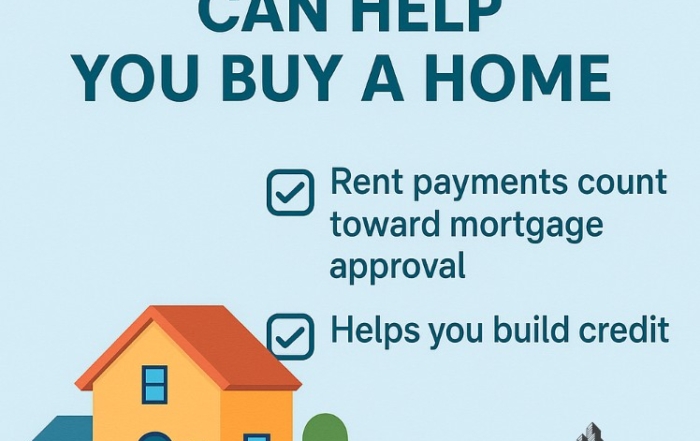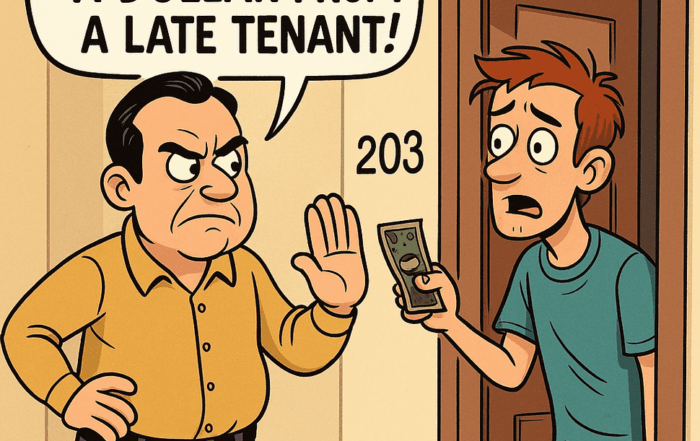
The Right Way to Handle a Code Violation Inspector: Expert Tips from a 20-Year Seasoned Investor and Property Manager
As a seasoned investor and property manager with over 20 years of experience, I’ve faced my fair share of code violations. These situations, though challenging, are manageable with the right approach. Handling code violations efficiently and effectively can mean the difference between a minor inconvenience and a costly, drawn-out process. Here are my top ten rules for dealing with code violation inspectors and ensuring violations are handled with minimal consequences.
Rule 1: Communication is Money
Constant communication is essential. From the moment you are notified of a violation, keep the lines of communication open with the inspector. Regular updates and quick responses show your commitment to resolving the issue promptly. This proactive approach not only demonstrates your dedication but also builds trust with the inspector. In the world of property management, time is money. Delays can lead to escalated penalties and further complications. By maintaining regular contact, you can often negotiate timelines and clarify any misunderstandings before they become larger issues.
Moreover, clear communication helps you stay informed about the specific requirements and expectations of the inspector. This ensures that you address all aspects of the violation correctly the first time, avoiding re-inspections and additional fines. Make it a habit to follow up every phone conversation with a written summary via email. This not only reinforces your commitment but also provides a documented trail of your efforts to comply.
Rule 2: Build Rapport with the Inspector
Remember that inspectors are people too. Building a positive relationship with them can make a significant difference. If they understand that you are genuinely trying to comply and not a habitual violator, they are more likely to be flexible and cooperative. Start by showing respect and appreciation for their role in maintaining community standards. A little courtesy goes a long way. When you meet the inspector, introduce yourself and express your commitment to resolving the issue swiftly and correctly.
Share a bit about your background and your dedication to maintaining high standards in your properties. This personal touch can humanize the interaction, making the inspector see you as a conscientious property manager rather than just another case number. Additionally, consider inviting the inspector to walk through the property with you. This gives them a chance to provide immediate feedback and suggestions, which can be invaluable in ensuring that you address all concerns appropriately.
Rule 3: Be Humble and Willing to Learn
If you’ve never had a code violation before, let the inspector know. Approach the situation with humility and a willingness to learn. This attitude can foster goodwill and may result in a more lenient approach from the inspector. Admitting that you don’t have all the answers and showing a genuine interest in learning the correct procedures can create a collaborative atmosphere.
Ask questions about the violation and the best ways to remedy it. This shows that you value their expertise and are eager to comply. Moreover, a humble approach can defuse potential tension and make the inspector more inclined to assist rather than penalize. Remember, the goal is not just to fix the current issue but to understand how to prevent similar violations in the future. This proactive mindset can save you a lot of trouble down the line.
Rule 4: Keep Everything in Writing
From the start of your communications, make sure to keep everything documented via email. This creates a clear paper trail that can be crucial if the case escalates to code court. Ledger all interactions and updates meticulously. Written communication serves multiple purposes: it provides a record of your efforts to comply, helps clarify any ambiguities, and protects you legally.
When you receive a notice of violation, acknowledge it in writing and outline your plan to address the issues. Send regular updates on your progress, and always confirm any verbal agreements with a follow-up email. This documentation can be invaluable if disputes arise or if you need to request extensions or variances. In the unfortunate event that your case goes to court, a detailed paper trail can demonstrate your proactive efforts to comply and potentially mitigate penalties.
Rule 5: Create a Check-Off List for Repairs
As you address the required fixes, maintain a check-off list. Send this list to the inspector regularly to confirm that they have visually verified each completed item. This not only keeps the inspector informed but also demonstrates your proactive approach. A check-off list helps ensure you don’t overlook any required repairs and allows you to track your progress systematically.
When you send the list to the inspector, ask them to confirm receipt and provide feedback on the completed items. This ongoing dialogue can help catch any potential issues early and avoid rework. Additionally, a detailed check-off list can serve as a comprehensive record of your compliance efforts, which is useful for legal purposes and future property management.
Rule 6: Communicate Tenant Challenges
If there are challenges with the tenant that are affecting your ability to comply, let the inspector know. Explaining these difficulties can sometimes result in extensions or other forms of leniency. For example, if a tenant is uncooperative or if access to the unit is restricted, inform the inspector promptly.
Provide detailed explanations and any relevant documentation to support your case. This transparency shows that you are making every effort to comply despite the challenges. Inspectors are often willing to work with property managers who are upfront and honest about their situations. They may offer practical solutions or extend deadlines to accommodate your circumstances.
Rule 7: Don’t Be a Slumlord
If something needs fixing, fix it. Neglecting repairs not only aggravates the violation but can also damage your reputation. Always prioritize the health and safety of your tenants and the condition of your property. Being a responsible landlord means addressing issues promptly and maintaining your properties to high standards.
Neglecting repairs can lead to more significant problems and higher costs in the long run. Moreover, it can damage your relationship with tenants, leading to higher turnover and vacancies. By addressing repairs promptly, you demonstrate your commitment to providing safe and comfortable living conditions. This not only helps resolve the current violation but also enhances your reputation as a responsible property manager.
Rule 8: Address Tenant-Caused Issues
Even if the violation is the tenant’s fault, you need to address it since the problem is now between you and the city. Keep good records and if you still believe the tenant is responsible, you can charge them at the end of their lease. It’s crucial to resolve the violation promptly to avoid escalating penalties and potential legal issues.
Once the issue is resolved, document all related expenses and repairs. If you believe the tenant is responsible, present them with the documentation and charges at the end of their lease. However, always ensure your actions comply with local landlord-tenant laws to avoid disputes. Keeping thorough records helps you manage these situations professionally and transparently.
Rule 9: Explore All Options
When given a solution by the inspector, don’t settle for the first option. Explore alternative solutions that might be more cost-effective or practical. For example, instead of installing a stronger AC unit, consider tinting windows to reduce heat, as this might resolve the issue at a lower cost.
Discuss these alternatives with the inspector and seek their approval before proceeding. This proactive approach shows that you are committed to resolving the issue in the most efficient manner possible. Additionally, exploring alternatives can often uncover more sustainable and cost-effective solutions that benefit both you and your tenants.
Rule 10: Proactive Communication is Key
Communicate daily, if necessary, until the situation is resolved. Being overly communicative and proactive has never been a problem. It shows your dedication to resolving the issue and can prevent misunderstandings or delays. Regular updates and follow-ups demonstrate your commitment to compliance and keep the inspector informed of your progress.
This proactive approach can also help build a positive relationship with the inspector, making future interactions smoother. By staying on top of communications, you ensure that all parties are on the same page and that the violation is resolved as quickly and efficiently as possible.
Conclusion
Handling code violations effectively requires a strategic approach rooted in communication, humility, and diligence. By following these ten rules, you can navigate the process smoothly and minimize the impact on your properties and tenants. Remember, the goal is not just to resolve the current violation but to build a reputation as a responsible and proactive property manager. This reputation can save you time, money, and stress in the long run.
Your Rent Can Now Help You Buy a House
Jorge Vazquez2025-07-17T01:47:51+00:00July 17th, 2025|Comments Off on Your Rent Can Now Help You Buy a House
Your Rent Can Now Help You Buy a House (Yes, It’s Official) I was taking lunch while listening to the news—half a sandwich in, I hear something that made me stop mid-bite. “Rent payments [...]
Paralegal or Attorney? How I Handled My Florida Eviction as an LLC Owner
Jorge Vazquez2025-07-18T16:08:53+00:00July 15th, 2025|Comments Off on Paralegal or Attorney? How I Handled My Florida Eviction as an LLC Owner
The Eviction Wake-Up Call Evictions are like root canals: nobody wants one, but sometimes they’re the only way to get things back in order. In my case, I had a tenant who stopped [...]
From Unsold to Rented in 7 Days: How My Property Management Team Saved an Airman’s Wallet (and Peace of Mind)
Jorge Vazquez2025-07-18T11:58:31+00:00June 26th, 2025|Comments Off on From Unsold to Rented in 7 Days: How My Property Management Team Saved an Airman’s Wallet (and Peace of Mind)
From “I’m stuck” to “problem solved” in 7 days. You ever hear a story that reminds you why you do this work? This one came from Ankush, one of our property managers—and it [...]
Why You Shouldn’t Take a Dollar from a Late Tenant (Unless It’s the Full Balance)
Jorge Vazquez2025-06-25T01:36:19+00:00June 25th, 2025|Comments Off on Why You Shouldn’t Take a Dollar from a Late Tenant (Unless It’s the Full Balance)
Why You Shouldn’t Take a Dollar from a Late Tenant (Unless It’s the Full Balance) We’re gonna start this one with a story. Today we were on a call with a potential landlord client [...]
Budget-Friendly Kitchen Remodel: 10 High-Impact Changes
allanmcnabb2025-07-01T19:25:37+00:00June 19th, 2025|Comments Off on Budget-Friendly Kitchen Remodel: 10 High-Impact Changes
The dream of a glistening, modern kitchen often collides with the stark reality of a limited budget. A full-gut renovation, with costs easily running into the tens of thousands, can feel like a distant [...]
Yes, You Can Invest in PadSplit—and Still Have a Property Manager
Jorge Vazquez2025-07-17T18:24:54+00:00June 16th, 2025|Comments Off on Yes, You Can Invest in PadSplit—and Still Have a Property Manager
So you’re thinking about PadSplit—renting rooms, boosting cash flow, maybe even housing a few essential workers who just need a place to crash. Sounds good, right? But then reality hits: “Wait, do [...]







